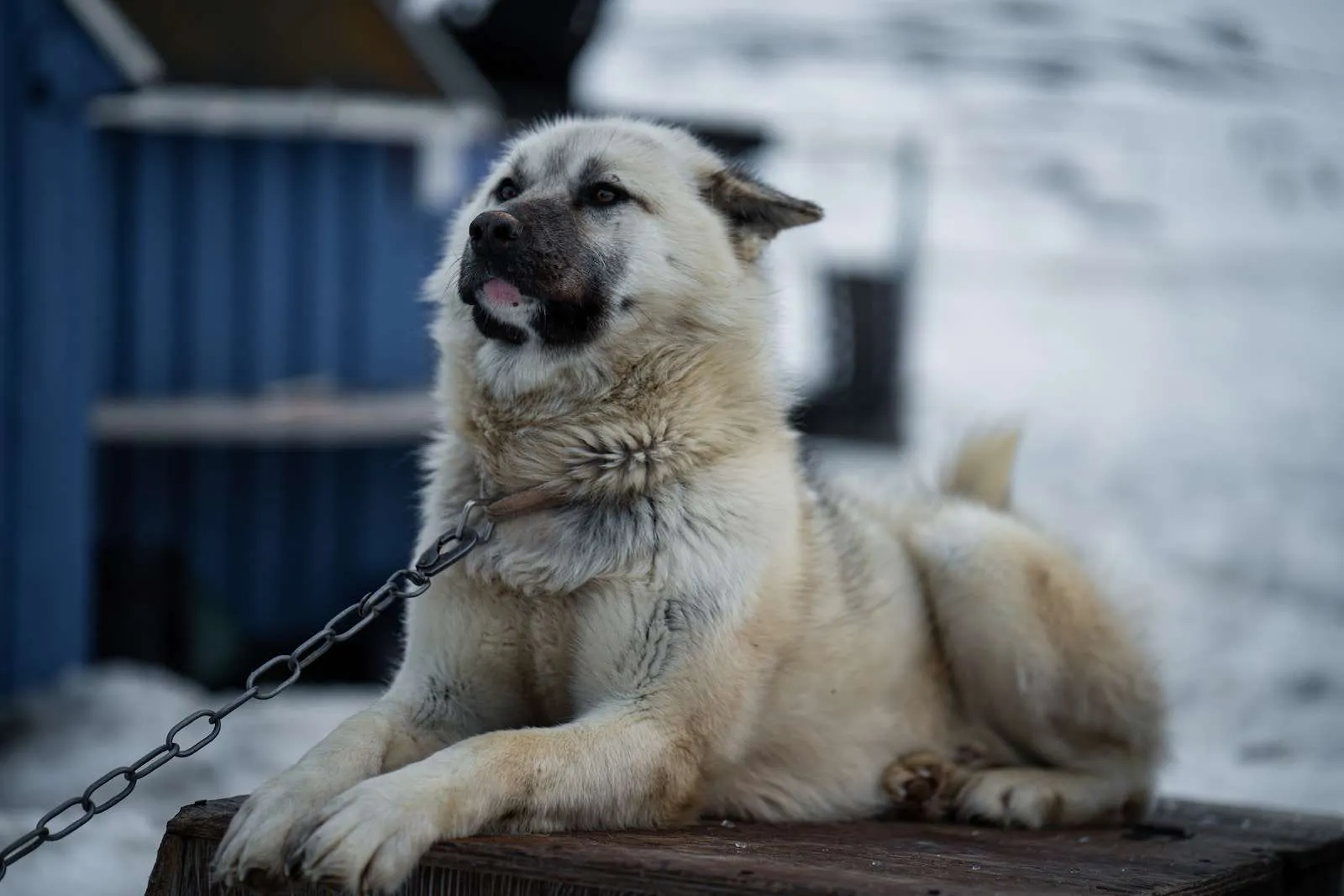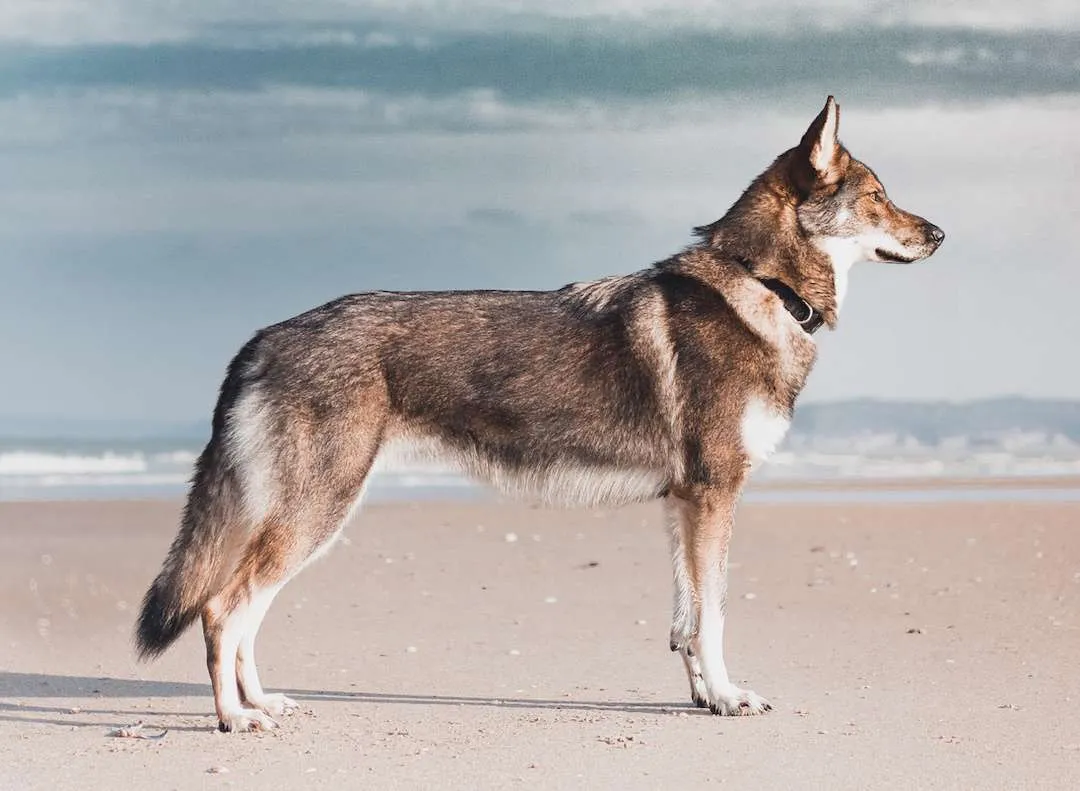Statistics:
- Height: 10 to 14 inches
- Weight: 15 to 30 pounds
- Life Span: 12 to 15 years
- Diet: Omnivorous (high-quality commercial dog food suitable for size and age)
Pugalier Overview:
The Pugalier is a delightful crossbreed, blending the charming Pug with the graceful Cavalier King Charles Spaniel. These dogs tend to be small, with an affectionate and loyal demeanor. Their adorable appearance, featuring a distinct facial expression and a compact body, is complemented by a lovable personality.
Pugaliers typically inherit the Pug’s wrinkles and short muzzle along with the Spaniel’s silky coat. While they are adaptable to various living situations, they thrive in an environment filled with attention and love. Great companions for families, singles, or seniors, Pugaliers enjoy being an integral part of their human family.
Pugalier Highlights:
Pugaliers are known for their friendly and affectionate nature. They often form close bonds with their families and are generally excellent with children and other pets. Their manageable size makes them suitable for both apartment living and houses with yards, as long as they receive adequate exercise and mental stimulation.
These dogs often display an intelligence that makes them responsive to training, although their stubborn streak may sometimes require a patient hand. Social and amiable, Pugaliers make excellent companions for those looking for a loving and entertaining pet.
Pugalier Evolution and History:
The Pugalier is a relatively new designer breed, with its origin likely dating back to the 1990s or early 2000s. Breeders initially mixed the Pug and the Cavalier King Charles Spaniel to create a healthier dog with the endearing characteristics of both parent breeds.
As a crossbreed, the Pugalier’s appearance and temperament can vary widely, even within the same litter. They are not recognized by major kennel clubs but have found a dedicated following among pet owners who appreciate their unique blend of traits and adaptable nature.
Pugalier Size and Weight:
The Pugalier usually stands between 10 to 14 inches tall at the shoulder and weighs anywhere from 15 to 30 pounds. Their size can depend on the specific traits inherited from the parent breeds.
Males might be slightly larger than females, but this isn’t always the case. Potential owners should consult with the breeder to understand the likely adult size of a particular puppy, particularly if living in a space-limited environment.
Pugalier Personality:
Pugaliers are affectionate, playful, and often quite comical in their behavior. They enjoy being the center of attention and often form strong connections with their human families.
However, they can be a bit stubborn or independent at times, which may require a patient and consistent approach to training. Despite this occasional stubbornness, they are generally eager to please and respond well to positive reinforcement.
The Adaptability of the Pugalier:
Pugaliers are known for their adaptability. They can thrive in various living situations, from small apartments to houses with large yards. They do well in different climates, but their short muzzle may make them more sensitive to extreme heat.
Pugaliers are suitable for families, singles, and seniors alike. Their social nature means they do not like being left alone for extended periods, so a home where they receive regular attention and companionship is ideal.
Pugalier Temperament:
The Pugalier’s temperament is typically friendly and affectionate. They get along well with children, displaying patience and playfulness. Proper socialization ensures they usually integrate well with other dogs and pets.
Though generally gentle, Pugaliers may show a slight independent or stubborn streak. Providing consistent training and utilizing positive reinforcement techniques helps in nurturing their best behaviors.
Pugalier Maintenance and Grooming:
Pugaliers require moderate grooming. Brushing once or twice a week helps in removing loose hair and maintaining a healthy coat. Depending on the specific coat inherited, professional grooming may be needed occasionally.
Regular care, including nail trimming, ear cleaning, and dental care, should be part of their grooming routine. Regular check-ups with a veterinarian will help in maintaining overall health and well-being.
The Trainability of the Pugalier:
Pugaliers often respond well to training, especially when positive reinforcement techniques are used. Early socialization helps in shaping them into well-adjusted adults.
Training might require patience at times due to their occasional stubbornness, but their eagerness to please usually prevails. Engaging them with varied training exercises and maintaining consistency leads to success.
Exercise Needs of the Pugalier:
The Pugalier requires moderate exercise to stay healthy and happy. Daily walks, playtime, and mental stimulation are essential for this energetic breed.
While they enjoy physical activity, they’re also content with indoor play and companionship. It’s essential to monitor them during hot weather due to their short muzzle, as they can be more susceptible to overheating.
Pugalier Health:
Pugaliers are generally healthy, but they may inherit health issues from their parent breeds:
- Hip Dysplasia: A malformation of the hip joint, which can lead to arthritis. Maintaining a healthy weight and regular veterinary care can mitigate the risk.
- Breathing Issues: Due to their short muzzle, they may experience breathing problems, particularly in hot weather. Care must be taken to ensure they don’t overheat.
- Eye Problems: Regular eye checks and early detection can help in managing potential eye issues, such as Progressive Retinal Atrophy (PRA).
Pugalier Care:
Care for a Pugalier includes regular exercise, a balanced diet, and consistent grooming. They thrive on social interaction and need to be included in family activities.
Regular veterinary check-ups, vaccinations, and preventive care for parasites are essential for overall health. Early socialization and training will ensure they grow into well-behaved adults.
Pugalier Feeding:
Pugaliers should be fed high-quality commercial dog food suitable for their size, age, and activity level. The amount may vary, but generally ranges from 1 to 2 cups a day, divided into two meals.
Monitoring their weight and adjusting the diet as needed is essential for preventing obesity. Fresh water should always be available, and treats should be given in moderation.
Pugalier Coat Color and Grooming:
The Pugalier’s coat can vary in color and texture, often being short and fine or somewhat longer and silky. Regular brushing and occasional professional grooming will keep the coat healthy.
Attention to other grooming needs, including teeth cleaning, nail trimming, and ear care, is vital. Regular grooming provides an opportunity to check for signs of health problems.
Pugalier and Children:
Pugaliers are usually excellent with children, displaying patience, affection, and playful energy. Their friendly disposition makes them great family companions.
However, interactions between younger children and the Pugalier should be supervised to ensure safe and gentle play. Teaching children how to interact properly with the dog promotes a positive relationship.
Pugalier and Other Pets:
Pugaliers usually get along well with other pets, especially when properly socialized. They can coexist peacefully with other dogs and even cats.
Introducing them appropriately and taking care to match personalities ensures harmonious relationships. Supervision may be required initially, but they generally adapt well to a multi-pet household.
Similar Dogs:
- Pug: As one of the parent breeds, the Pug shares many physical and personality traits with the Pugalier. The facial wrinkles, loving nature, and similar size make them closely related.
- Cavalier King Charles Spaniel: The other parent breed, the Cavalier King Charles Spaniel, contributes to the Pugalier’s silky coat, gentle temperament, and affectionate nature.
- Cockalier: A mix of Cocker Spaniel and Cavalier King Charles Spaniel, the Cockalier shares the elegant appearance and friendly disposition of the Pugalier, making them similar in many ways.
The Pugalier’s unique blend of characteristics makes it a lovable and adaptable choice for many dog lovers. Proper care, training, and socialization will allow them to thrive as cherished members of the family.

